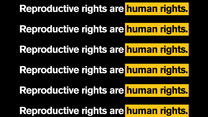This handbook articulates the standards and practices that support a comprehensive approach to Monitoring, Evaluation, Accountability, and Learning (MEAL) to improve performance monitoring, program adaptation, and use of data for evidence-based decision-making. It also includes MEAL principles, which run across the standards. All International Rescue Committee (IRC) programs are expected to meet these standards, practices, and principles throughout the project lifecycle.
The IRC’s Monitoring, Evaluation, Accountability and Learning (MEAL) handbook is a one-stop-shop for:
- Technical guidance, tools, templates, and training resources needed for MEAL activities
- A shared understanding of IRC MEAL standards and principles
- Clarification of MEAL requirements and staff responsibilities for the Strategic Action Plan, its programs, and projects
- Onboarding for new MEAL/M&E staff and those working closely with them
- Professional development for MEAL/M&E staff through self-directed learning, mentoring and coaching
It articulates the MEAL practices that should be carried out at each stage of a project life cycle through 7 standards:
- ToC/Logframe
- MEAL budget
- MEAL Plan
- Data Collection Tools & Systems
- Data Collection & Quality Check
- Data Analysis & Use
- Learning & Close
It also sets out five MEAL principles (Focus on Clients, Use Standardized Tools, Integrate MEAL with Program Activities, Support Continuous Professional Development, and Promote Equality) which run through all the standards.



